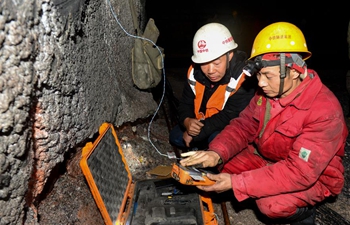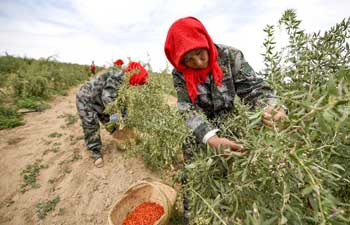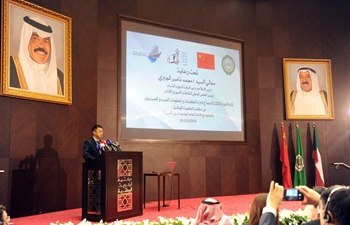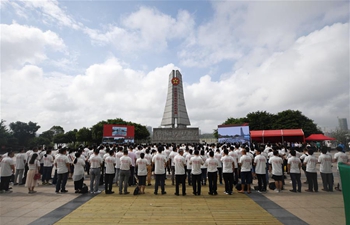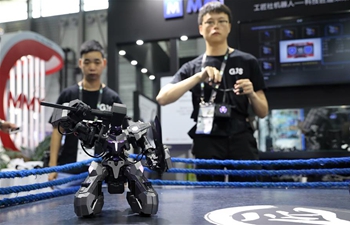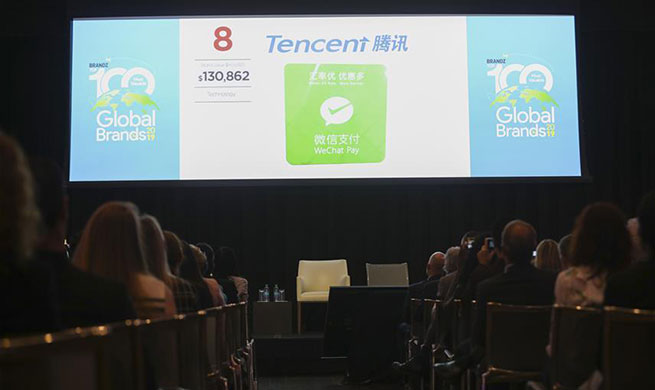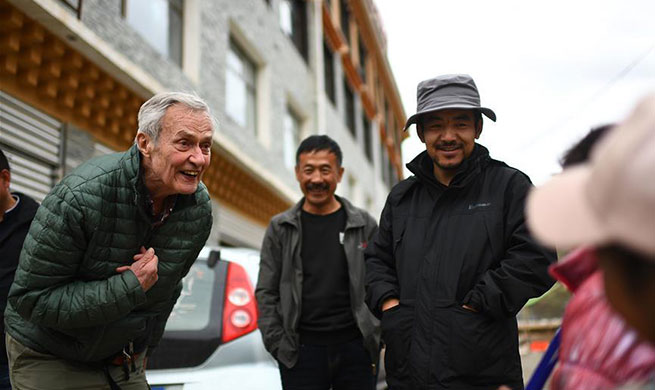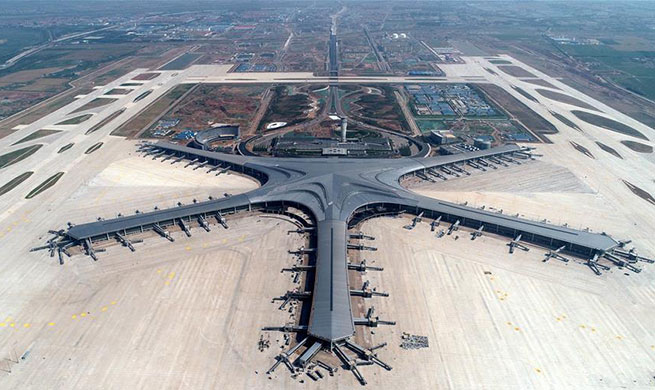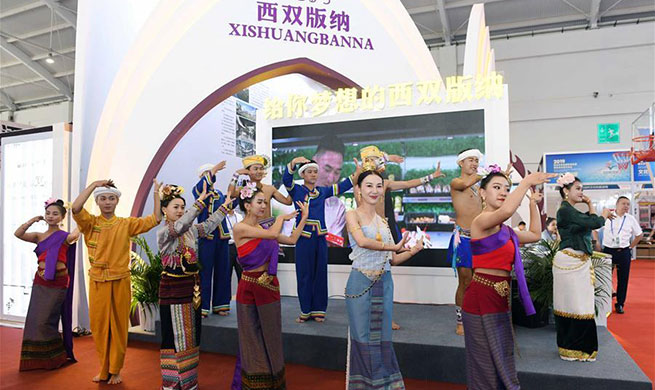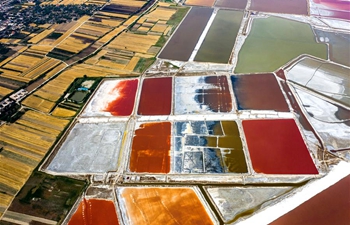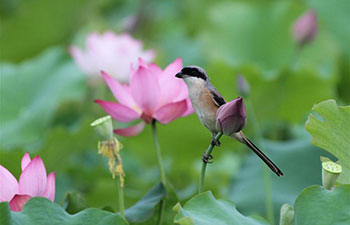NAKURU, Kenya, June 12 (Xinhua) -- Kenya is a country where 42 percent of the population is living in poverty and life is more difficult for those without skills or innovative ideas to generate an income.
For Siafu Women Group, whose membership is drawn from unemployed women with below college education, survival is capitalizing on available low-capital opportunities in art and culture and waste management.
The group is based in Kaptembwa, a low income residential area in Nakuru County in the Rift Valley region in Kenya.
Alice Boyani, the team leader said the 30 members would not earn enough from performing cultural songs during international commemoration days, political events and local activities and so they diversified into showcasing cultural artifacts and making handicrafts from recycled waste.
"When we started off in 2010, we were only focused on performing but with time we realized the income was not consistent," said Boyani on Wednesday.
"We had to make a decision on the way forward. We agreed to start collecting artifacts of Kisii culture and exhibit them during cultural events held within Nakuru County for a price," she added.
Boyani said showcasing the cultural artifacts has taught her a lesson that culture can unite people.
"Our group consists of members from Kikuyu and Kisii and we blend so well as we have learnt each other's culture and created a connection to it. It makes us feel one," she noted.
Their latest exhibition was during the celebration of International Museum Day on May 17 at Hyrax Museum Hill in Nakuru, about 160km northwest of the capital city, Nairobi.
According to Lillian Amwanda, curator at the museum, communities can preserve their cultures through songs, artifacts or writings and it is important as it keeps their history alive through generations.
"Museums are a great source of information on cultural diversity and we encourage locals to visit museums and learn a lot about other cultures," said Amwanda.
While on the tourism sector, the Siafu Women Group is contributing to cultural cohesion, on environmental protection front, the women are promoting sustainable management of solid waste through recycling waste into usable products.
Since 2014, the women have been using waste papers used in packaging cosmetics used in salons in making necklaces and table mats.
"Usually the papers are openly dumped in Kaptembwa so our work is to collect and sanitize them before making the handicrafts," said Boyani who trained the rest of the women on how to make the wares having acquired the skills from a friend.
They sell them at the events they attend and during church and women group meetings. Their prices range from 150 shillings (1.50 U.S. dollars) to 30 dollars depending on the size and whether sold as a set.
"It is good business but also comes with its own challenges, the main one being securing a reliable and sustainable market," noted Joyce Wambui, a group member.
Wambui said they hope they would get support to modernize their business and grow their returns in order to improve their standard of living.
Tom Nyamache, an economist said for women to run sustainable income generating activities it is important that they are equipped with basic entrepreneurial skills.
"In every corner of this country, women drive Kenya's economy through the various small scale businesses they ran but the question is how well are they equipped to run and grow their businesses?" he queried.
"It is important we have incubation centers for women who are unskilled or have little education. Centers where they can interact with highly skilled entrepreneurs from countries like China to learn how to successfully drive their enterprises into large scale businesses," he added.
